Consult Colorectal Surgeons Online (21 doctors)

Dr. Kishore V Alapati
Colorectal Surgeon
18 Years • MBBS, MD, FACS, FASCRS, FICS
Hyderabad
Apollo Hospitals Jubilee Hills, Hyderabad
100+ recommendations

Dr Shaikat Gupta Director Surgical Onco
Surgical Oncologist
34 Years • MBBS (University Gold Medalist), MS, FRCSEd
Kolkata
Apollo Multispeciality Hospitals , Kolkata, Kolkata
50+ recommendations

Dr. Charita Pradhan
Colorectal Surgeon
24 Years • MBBS, MS, DNB ( General Surgery), MRCS, FRCS.
Mumbai
Apollo Hospitals CBD Belapur, Mumbai

Dr. Chinnaya Parimi
Colorectal Surgeon
16 Years • MBBS, FACS
Hyderabad
Apollo Hospitals Jubilee Hills, Hyderabad

Dr. Amit Choraria
Surgical Oncologist
18 Years • MBBS, MS (Surgery) Fellow, Surgical Oncology, Tata Medical Center (FSO) Fellow, European Board of Surgery (Surgical Oncology) (FEBS) Fellow, Minimal Access Surgery (FMAS) Fellow, Indian Association of Gastrointestinal Endosurgeons (FIAGES) UICC Fellow, Royal Marsden NHS, London, UK Visiting Scholar, Plastic Reconstructive Surgery, CGMH, Taiwan Fellow, Robotic Surgical Oncology, Vattikuti Foundation, USA
Kolkata
Apollo Multispeciality Hospitals , Kolkata, Kolkata

Dr. Venkatesh Munikrishnan
Colorectal Surgeon
26 Years • MBBS, MRCS, FRCS
Chennai
Apollo Hospitals Greams Road, Chennai
100+ recommendations

Dr. Satyajit Godhi
General and Laparoscopic Surgeon
12 Years • MBBS, MS, Mch
Bengaluru
Apollo Hospitals Bannerghatta Road, Bengaluru
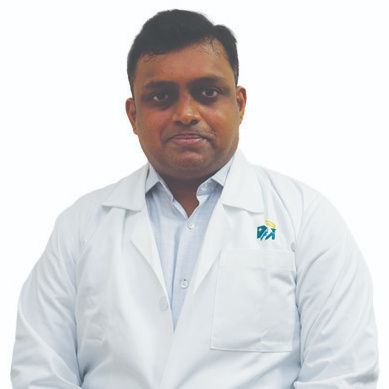
Dr. Kiran K J
General and Laparoscopic Surgeon
18 Years • MBBS, MS, FMAS, DMAS (Fellow & Dip in Min. Access surg.), FALS- Bariatric & Robotic Surgery
Bengaluru
Apollo Hospitals Bannerghatta Road, Bengaluru

Dr. Varughese Mathai
Colorectal Surgeon
28 Years • MBBS, M.S (Master of Surg.), DNB Surg.
Hyderabad
Apollo Hospitals Jubilee Hills, Hyderabad
50+ recommendations
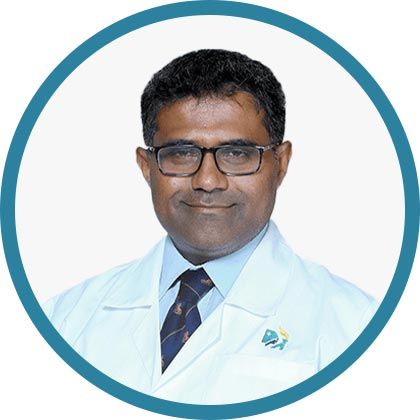
Dr. Prof. Narasimhaiah Srinivasaiah
Colorectal Surgeon
20 Years • MBBS, DNB, MD (Academic surg.), MRCS, MRCSI, FRCS (Gen.Surg.), EBSQ, PGDMLE
Bengaluru
Apollo Hospitals Bannerghatta Road, Bengaluru
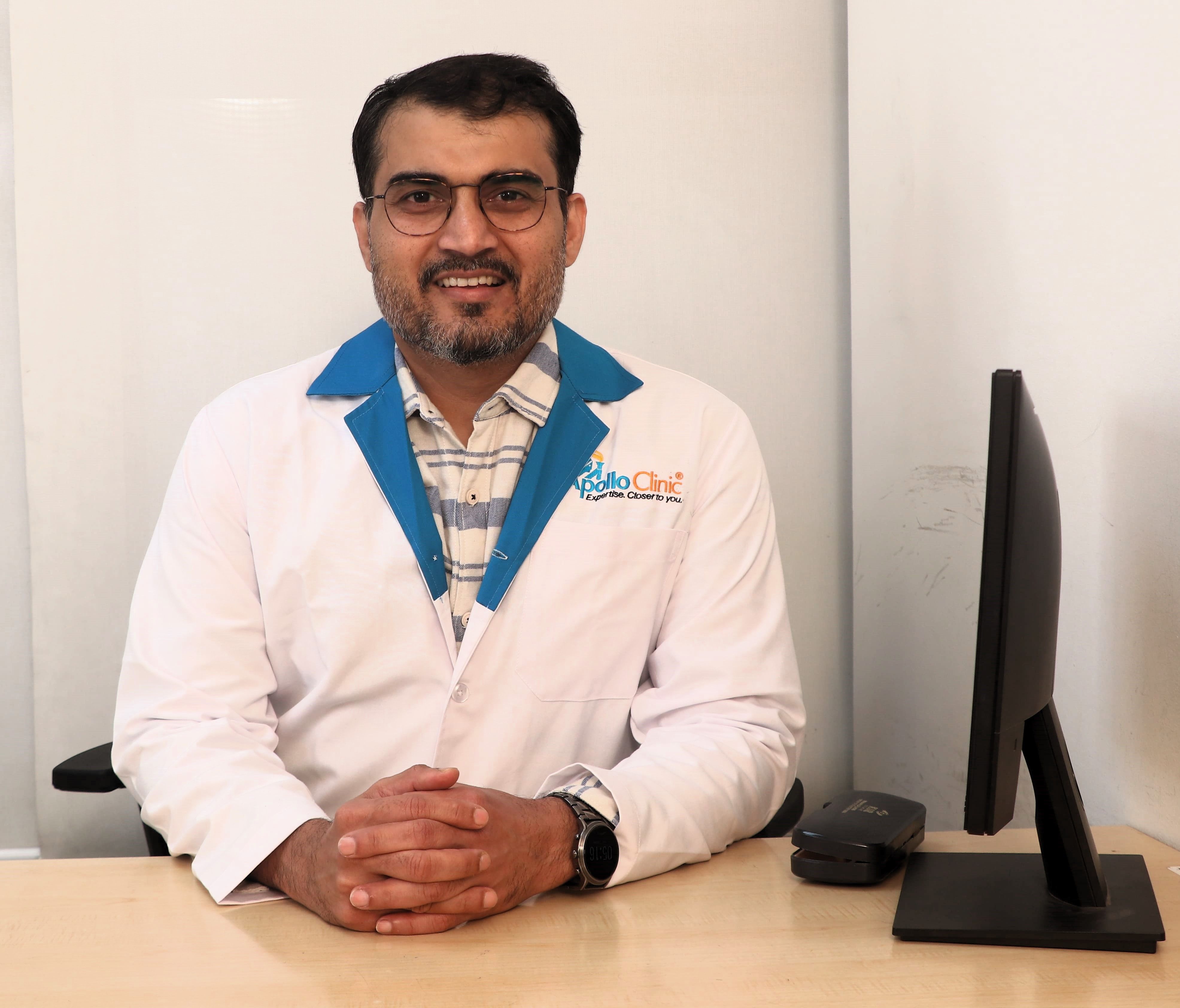
Dr. Deepak Kulkarni
General and Laparoscopic Surgeon
18 Years • MBBS, MS , FMAS ( Laparoscopic Surgery & Proctologist)
Pune
Apollo Clinic, Viman Nagar, Pune

Dr. Jahnavi Koneru
General and Laparoscopic Surgeon
7 Years • MBBS ,MS GENERAL SURGERY
Hyderabad
Apollo Clinic, Nizmapet, Hyderabad
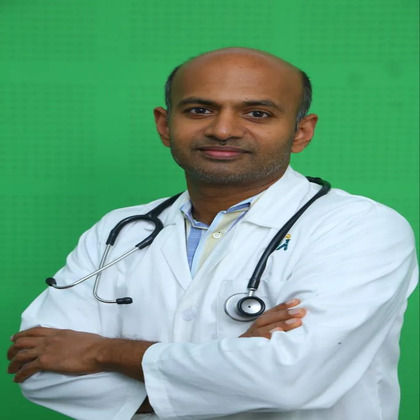
Dr. Chinnaya Parimi
Surgical Gastroenterologist
22 Years • MS, FACS
Hyderabad
Apollo Medical Centre Kondapur, Hyderabad

Dr. Santanu Sarkar
General Surgeon
19 Years • MBBS, MS Genral Surgery
Howrah
ILS HOWRAH., Howrah
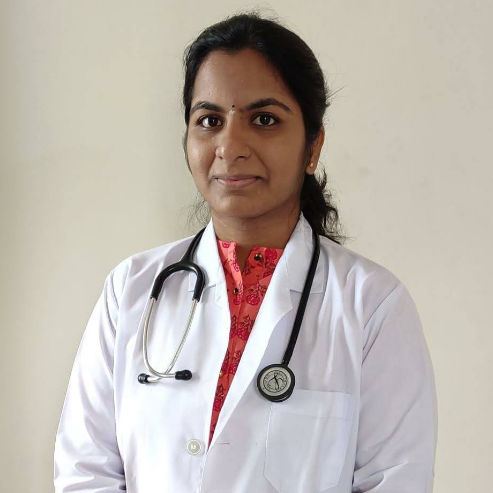
Dr G Prathyusha
General Physician/ Internal Medicine Specialist
5 Years • MBBS DNB (Family medicine), CCEBDM (Diabetology), PGDGM (Geriatrics), Primary care Rheumatologist.
Bengaluru
PRESTIGE SHANTHINIKETAN - SOCIETY CLINIC, Bengaluru
Colorectal Surgery
Booking a consult with a colorectal surgeon is now easier than ever with Apollo 24|7. Our platform offers a seamless experience for scheduling online or in-person appointments with top colorectal surgeons at trusted hospitals and clinics. With convenient appointment slots and access to experienced specialists, you can receive the care you need without hassle. Don't wait – book your consultation with a skilled colorectal surgeon today and take the first step towards better colorectal health.
What is Colorectal Surgery?
Colorectal surgery is a medical speciality that focuses on diagnosing, treating, and managing disorders of the colon, rectum, and anus. This branch of surgery encompasses a wide range of conditions, including colorectal cancer, inflammatory bowel diseases (like Crohn’s disease and ulcerative colitis), diverticulitis, and rectal prolapse. It involves both non-invasive treatments, such as endoscopic procedures, and complex surgeries, including bowel resections and the creation of stomas.
Colorectal surgery plays a critical role in maintaining gastrointestinal health and improving patients' quality of life. With the increasing prevalence of colorectal cancer and chronic conditions, this speciality has become increasingly vital in addressing significant public health concerns. A colorectal surgeon works closely with patients to offer preventive care, early diagnosis, and surgical interventions, aiming to enhance outcomes and promote long-term well-being.
Who is a Colorectal Surgeon?
A colorectal surgeon is a medical specialist trained in the surgical treatment of disorders affecting the colon, rectum, and anus. These surgeons undergo extensive education and training, typically completing medical school, followed by a general surgery residency, and then a specialized fellowship in colorectal surgery.
Colorectal surgeons are experts in managing a wide range of conditions, such as colorectal cancer, inflammatory bowel disease, haemorrhoids, and anal fissures. They are skilled in both traditional surgical methods and minimally invasive techniques, providing tailored care to address each patient's unique needs.
With their expertise, colorectal surgeons play a crucial role in improving patients’ gastrointestinal health and overall quality of life.
What Does a Colorectal Surgeon Do?
A colorectal surgeon specialises in diagnosing and treating conditions affecting the colon, rectum, and anus. They perform a variety of tasks to ensure the health and well-being of their patients, from managing chronic conditions to performing complex surgeries.
Key Responsibilities:
Diagnosis and Consultation: Colorectal surgeons assess patients with digestive and bowel issues, using medical history, physical exams, and diagnostic tests such as colonoscopies, CT scans, and biopsies.
Surgical Procedures: These surgeons carry out operations to treat conditions like colorectal cancer, diverticulitis, Crohn’s disease, and rectal prolapse. Procedures can range from minimally invasive laparoscopic surgeries to more extensive bowel resections.
Non-Surgical Treatments: Colorectal surgeons may recommend treatments such as dietary changes, medications, or endoscopic procedures to manage conditions without requiring surgery.
Patient Care and Follow-Up: They provide continuous care, guiding patients through recovery after surgery and managing long-term health, including regular check-ups and lifestyle advice.
Multidisciplinary Collaboration: They work closely with other specialists, such as oncologists and gastroenterologists, to create comprehensive care plans for patients, particularly those with cancer or inflammatory bowel diseases.
On a daily basis, colorectal surgeons spend their time in outpatient consultations, performing surgeries, and reviewing patient progress. Their role is crucial in maintaining gastrointestinal health, preventing serious conditions, and ensuring patients receive the best possible care.
What are the Other Sub-specialities of Colorectal Surgery?
Colorectal surgery is a broad field with various subspecialties, each focusing on different aspects of digestive and bowel health. Below are some key areas within this speciality:
Minimally Invasive Colorectal Surgery: This technique uses small incisions and specialised instruments to perform surgeries with less trauma to the body. It allows for faster recovery and reduced risk of infection, making it a preferred option for many procedures.
Colorectal Cancer Surgery: A doctor for colorectal cancer focuses on treating patients with cancer in the colon, rectum, or anus. Surgical interventions, often involving tumour removal and possible resection of affected bowel sections, are crucial in managing colorectal cancer and improving survival rates.
Inflammatory Bowel Disease (IBD) Surgery: In cases where medication and lifestyle changes are ineffective, a doctor for IBS (Irritable Bowel Syndrome) may recommend surgery. IBD surgeries aim to treat chronic conditions like Crohn's disease and ulcerative colitis, often involving removal of damaged parts of the bowel.
Proctology: This sub-speciality deals with diseases affecting the rectum and anus. A doctor for rectal issues addresses conditions such as haemorrhoids, anal fissures, and abscesses. Proctologists focus on diagnosing and treating disorders affecting the lower digestive tract.
Pelvic Floor Surgery: Surgeons in this field manage conditions that affect the pelvic floor muscles, which support organs like the bladder, uterus, and rectum. This type of surgery is vital for treating issues like urinary incontinence or pelvic organ prolapse.
Robotic Colorectal Surgery: Using advanced robotic systems, robotic colorectal surgery offers surgeons enhanced precision. This technique is particularly useful for complex procedures, providing better control and quicker recovery times for patients.
Diverticular Disease Surgery: Diverticulosis and diverticulitis can cause pain and complications in the colon. Surgery may be required when these conditions lead to serious infections, blockages, or perforations, and a doctor for bowel problems will decide if surgical intervention is necessary.
Rectal Prolapse Surgery: This condition involves the rectum slipping outside the body. Surgical treatment can help restore normal function and improve quality of life for patients dealing with severe prolapse.
Each of these sub-specialities plays an important role in the comprehensive care of patients, providing targeted treatments for a wide range of colorectal issues.
What are the Colorectal Surgery Examinations or Tests Performed by the Colorectal Surgeon?
Colorectal surgeons use a variety of diagnostic tests and examinations to assess the health of the colon, rectum, and anus. These tests help in diagnosing conditions such as colorectal cancer, inflammatory bowel diseases, and other bowel problems. Below are some of the most common procedures:
Colonoscopy: A colonoscopy is one of the most common tests for diagnosing colorectal conditions. It involves inserting a flexible tube with a camera into the rectum to examine the entire colon. It is often used to detect colorectal cancer, polyps, and other abnormalities.
Sigmoidoscopy: Similar to a colonoscopy, a sigmoidoscopy only examines the lower part of the colon. This test is commonly used to investigate symptoms like abdominal pain, rectal bleeding, or changes in bowel habits.
CT Colonography (Virtual Colonoscopy): This non-invasive test uses CT scans to create detailed images of the colon and rectum. It is an alternative for patients who cannot undergo traditional colonoscopy.
Stool Tests: Stool tests help detect hidden blood or infections in the digestive tract. This is often an initial step in identifying potential problems, including colorectal cancer or infections.
Barium Enema: This test involves filling the colon with a contrast material (barium) and then taking X-rays. It helps to identify structural issues in the colon, such as blockages or abnormalities.
Biopsy: If abnormalities are found during a colonoscopy or sigmoidoscopy, a biopsy may be taken. This involves removing a small sample of tissue for examination under a microscope to confirm conditions like cancer.
If you are experiencing persistent bowel issues, you may need to book a colorectal surgeon for further assessment.
What are the Common Conditions & Diseases that Colorectal Surgeons Treat?
Colorectal surgeons manage a wide range of conditions affecting the colon, rectum, and anus. Below are the top 15 conditions commonly treated:
Colorectal Cancer: A malignant growth in the colon or rectum, often requiring surgery to remove the tumour.
Diverticulosis: The formation of small pouches in the colon that can become inflamed or infected.
Haemorrhoids: Swollen blood vessels in the rectum, causing discomfort, bleeding, and itching.
Irritable Bowel Syndrome (IBS): A functional disorder causing symptoms like abdominal pain, bloating, and changes in bowel habits.
Inflammatory Bowel Disease (IBD): A group of disorders, including Crohn’s disease and ulcerative colitis, characterised by chronic inflammation of the digestive tract.
Anal Fissures: Small tears in the skin around the anus, causing pain and bleeding during bowel movements.
Rectal Prolapse: A condition where the rectum slips outside the anus.
Bowel Obstruction: A blockage in the intestines, which can be caused by various conditions, including tumours or scar tissue.
Celiac Disease: An autoimmune disorder affecting the small intestine due to gluten intolerance.
Polyps: Growths in the colon that can be precursors to cancer.
Fistulas: Abnormal passages between the bowel and other organs, often caused by infection or Crohn’s disease.
Anal Abscesses: Infections around the anus leading to painful lumps filled with pus.
Proctitis: Inflammation of the lining of the rectum, often due to infections or inflammatory diseases.
Chronic Constipation: Long-term difficulty in passing stools, often affecting quality of life.
Incontinence: Loss of control over bowel movements, which may be due to nerve damage or other causes.
Reasons to See a Colorectal Surgeon
If you experience persistent digestive or bowel issues, consulting a colorectal surgeon can provide essential care and treatment. Below are common reasons to seek their expertise:
Blood in stools or rectal bleeding that lasts for more than a few days.
Chronic abdominal pain or discomfort that doesn’t improve.
Difficulty in passing stools, including persistent constipation or diarrhoea.
Unexplained weight loss or fatigue, which could indicate a serious condition.
A change in bowel habits, such as frequent diarrhoea or constipation.
Family history of colorectal cancer or other related conditions.
If you're unsure about your symptoms, consider an online colorectal surgeon consultation for guidance.
What Types of Procedures do Colorectal Surgeons Perform?
Colorectal surgeons are skilled in performing various procedures, both therapeutic and surgical, to treat a wide range of gastrointestinal conditions. These procedures are aimed at relieving symptoms, managing chronic conditions, and improving overall health.
Top Therapies in Colorectal Surgery:
Medications for Inflammatory Bowel Disease (IBD): Used to control symptoms and reduce inflammation in conditions like Crohn’s disease and ulcerative colitis.
Endoscopic Treatments: Including polyp removal or dilating strictures in the colon using a flexible camera.
Bowel Resection: Removing part of the bowel to treat conditions such as diverticulitis or cancer.
Stoma Care: Managing and maintaining colostomies or ileostomies for patients who have had sections of their bowel removed.
Sphincter-Saving Procedures: Treatment for rectal cancer where the goal is to avoid a permanent colostomy.
Top Surgeries in Colorectal Surgery:
Colonoscopy: A diagnostic procedure used for screening and removing polyps or samples from the colon.
Haemorrhoidectomy: Surgical removal of haemorrhoids, particularly if other treatments have failed.
Rectal Prolapse Surgery: A procedure to treat the condition where the rectum protrudes outside the body.
Bowel Resection Surgery: Removal of part of the colon due to cancer, diverticulitis, or blockages.
Robotic-Assisted Surgery: Minimally invasive surgery using robotic systems to perform complex colorectal procedures with greater precision.
Fistula Repair: Surgery to close abnormal connections between the bowel and other organs, often caused by conditions like Crohn’s disease.
Stoma Creation: Surgery to create a new opening for waste to leave the body when the bowel cannot function normally.
Anal Fissure Repair: Surgical treatment for painful tears in the skin around the anus.
Diverticulitis Surgery: Removal of damaged areas of the colon in cases of severe diverticulitis.
Colorectal Cancer Surgery: Removing tumours or sections of the colon to treat colorectal cancer.
Proctectomy: Removal of the rectum, often performed in cases of severe cancer or prolapse.
Sphincterotomy: A procedure to treat anal fissures by cutting the muscle that causes spasm.
Pelvic Floor Surgery: Corrects pelvic floor dysfunction, often affecting bowel control.
Colorectal Reconstruction: Rebuilding bowel continuity after resection, sometimes involving an ileostomy or colostomy.
Transanal Minimally Invasive Surgery (TAMIS): A modern procedure for treating early rectal cancers with minimal incisions.
If you need more information about these procedures, a doctor for colon problems can help guide you. Be sure to consider the colorectal surgeon fee before booking a consultation for your treatment.
Why Choose an Apollo 24|7 Colorectal Surgeon?
Apollo 24|7 colorectal surgeons are highly qualified and experienced professionals dedicated to providing exceptional care for patients with colorectal conditions. Our surgeons have undergone extensive training and possess the expertise necessary to diagnose and treat a wide range of colorectal diseases effectively. They stay up-to-date with the latest advancements in the field, ensuring that patients receive the most advanced and evidence-based care available.
At Apollo 24|7, we prioritise personalised care, tailoring treatment plans to meet each patient's unique needs and preferences. Our colorectal surgeons work closely with a multidisciplinary team of healthcare professionals to ensure comprehensive and coordinated care throughout the treatment journey. We offer a wide range of advanced treatment options, including minimally invasive and robotic-assisted surgeries, which can lead to faster recovery times and improved outcomes.
Patients can access our colorectal surgeons through seamless online consultations or in-person visits at our state-of-the-art clinics. This flexibility ensures that patients can receive expert care conveniently, regardless of their location or schedule.
With Apollo 24|7, patients can trust that they are in the hands of highly skilled and compassionate colorectal surgeons who are committed to delivering the best possible outcomes.
What to Expect When Visiting a Colorectal Surgeon?
Visiting a colorectal surgeon can seem daunting, but it is essential for managing digestive or bowel concerns. Here’s what you can expect during your consultation:
Initial Consultation: You will discuss your symptoms, medical history, and lifestyle. The surgeon may ask questions about your diet, bowel habits, and any family history of colorectal issues.
Examination and Tests: A physical exam may be performed, and depending on your condition, tests like a colonoscopy or blood work may be ordered to aid in diagnosis.
Diagnosis and Treatment Plan: Once a diagnosis is made, the surgeon will explain your options. This could include non-invasive therapies, surgery, or further tests.
Follow-up Care: The colorectal surgeon will discuss a treatment plan and the next steps, which could involve surgery or monitoring your condition with regular check-ups.
Before choosing your specialist, you can check colorectal surgeon reviews to ensure you're comfortable with your choice. If you're looking for a colorectal surgeon near me, it's a good idea to explore local options and ensure the best care possible.
How Can I Get an Appointment With a Colorectal Surgeon?
Booking an appointment with an Apollo 24|7 colorectal surgeon is a simple and convenient process:
Online booking: Visit the Apollo 24|7 website and navigate to the "Colorectal Surgery" speciality page. Select your preferred surgeon and click on the "Book Appointment" button to choose a suitable date and time for your consultation.
Mobile app booking: Download the Apollo 24|7 mobile app from the App Store or Google Play Store. Log in or create an account, search for "Colorectal Surgery," and select your preferred surgeon. Choose a convenient date and time for your appointment and confirm your booking.
Offline booking: You can also call the Apollo 24|7 helpline to book an appointment with a colorectal surgeon. Provide your details, preferred location, and desired appointment date and time, and our representatives will assist you in scheduling your consultation.
Referral: If your primary care physician or another specialist recommends seeing a colorectal surgeon, they can help you arrange an appointment with an Apollo 24|7 surgeons directly.
Colorectal Surgeons in Other Top Cities
Doctors in Top cities
- •Top Doctors in Hyderabad
- •Top Doctors in Bengaluru
- •Top Doctors in Chennai
- •Top Doctors in Kolkata
- •Top Doctors in East Godavari
- •Top Doctors in Mumbai
- •Top Doctors in New Delhi
- •Top Doctors in Bangalore
- •Top Doctors in Pune
- •Top Doctors in Delhi
- •Top Doctors in Gurugram
- •Top Doctors in Noida
- •Top Doctors in Ahmedabad
- •Top Doctors in Lucknow
- •Top Doctors in Ghaziabad
- •Top Doctors in Visakhapatnam
- •Top Doctors in Guwahati
- •Top Doctors in Madurai
- •Top Doctors in Bhubaneswar
- •Top Doctors in Vijayawada
Related Treatments
- •Treatment for Anal fissure
- •Treatment for Constipation Treatment
- •Treatment for Diverticulitis
- •Treatment for Familial Adenomatous Polyposis
- •Treatment for Fissure
- •Treatment for Fissure In Ano
- •Treatment for hemorrhoids
- •Treatment for Rectal prolapse
- •Treatment for Ulcerative Colitis
- •Treatment for Fistula
- •Treatment for Acute Diarrhea Treatment
- •Treatment for Adopted Child Syndrome Treatment
- •Treatment for Ankle Pain
- •Treatment for fistulae
- •Treatment for Gaucher Disease
FAQs
What is the recovery time after colorectal surgery?
Recovery time varies depending on the procedure and individual health. Generally, most patients recover in 4–6 weeks, although minimally invasive surgeries may reduce this to 2–3 weeks. Full recovery, including regaining strength and normal bowel function, may take longer. Your colorectal surgeon will provide detailed aftercare instructions and monitor your progress to ensure proper healing.
Is colorectal surgery a major surgery?
Yes, colorectal surgery is considered major surgery. It often involves removing or repairing parts of the colon or rectum, which are vital organs. However, advances in minimally invasive and robotic techniques have reduced risks and recovery times, making the procedures safer and more efficient.
What is removed in colorectal surgery?
In colorectal surgery, affected sections of the colon or rectum are removed. This may include tumours, polyps, or diseased tissue caused by conditions like cancer, diverticulitis, or inflammatory bowel disease. The extent of removal depends on the severity and location of the problem.
Who needs colorectal surgery?
Colorectal surgery is needed for patients with conditions like colorectal cancer, inflammatory bowel disease, diverticulitis, rectal prolapse, or chronic bowel obstruction. Your colorectal surgeon will assess your symptoms and medical history to determine if surgery is the best option for your condition.
Is colorectal surgery painful?
While some pain is expected after colorectal surgery, modern techniques and pain management strategies help minimise discomfort. Most patients experience manageable pain that subsides as they recover. Your doctor will prescribe medication and provide guidance to ensure effective pain relief.
What is the success rate of colorectal surgery?
The success rate of colorectal surgery depends on the condition being treated. For conditions like early-stage colorectal cancer or diverticulitis, the success rate is high, often exceeding 90%. Outcomes improve further with early diagnosis, skilled surgeons, and post-operative care.
What to eat after colorectal surgery?
After colorectal surgery, a low-residue diet is recommended initially to allow the bowel to heal. Gradually, patients can reintroduce fibre-rich foods like fruits, vegetables, and whole grains. Hydration is crucial, and your surgeon may recommend specific dietary guidelines tailored to your recovery needs.
Is colorectal surgery safe?
Colorectal surgery is generally safe, with risks significantly reduced by modern techniques and skilled surgeons. As with any major surgery, complications like infection or bleeding can occur, but these are rare. A thorough pre-operative assessment ensures suitability and safety for the patient.
What is the life expectancy after colorectal surgery?
Life expectancy after colorectal surgery depends on the underlying condition. For patients treated for early-stage colorectal cancer or non-cancerous issues, outcomes are excellent, often resulting in a normal life expectancy. Regular follow-ups and lifestyle changes can further enhance long-term health.
How long is hospital stay after colorectal surgery?
Hospital stays after colorectal surgery typically range from 3–7 days, depending on the procedure and individual recovery. Minimally invasive techniques may shorten the stay, while more complex surgeries may require extended monitoring. Your doctor will advise on discharge timing based on your progress.